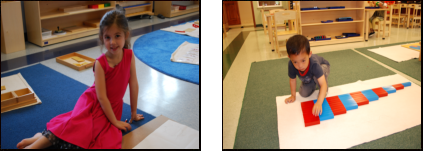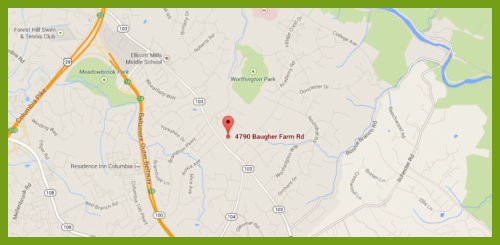Preschool

Global Children Montessori School offers the young child a program with a wide variety of learning experiences utilizing the Montessori approach to education. The intellectual, physical, social, and emotional progress of each child is documented in the records of the school and the Director/Teacher will discuss this progress with the child’s parents during the parent/teacher conferences. Children will be supervised at all times by at least one staff member. The program will be in session five days a week Monday through Friday from 8:00 a.m. to 5.30 p.m.
Our program is a 10-month program working for approximately 180 days. The Pre-School Program serves children between the ages three to five years.
The Montessori classroom is a “living room” for children. It is filled with a rich variety of specially designed materials for the children to use in every area: reading, writing, mathematics, science, geography practical life, and sensorial development. The abundance of materials makes it possible for the children to exercise more self-direction and independent work than is usually possible in a traditional classroom. They are given many more choices than a traditional environment could provide. Children choose their activities from open shelves with self-correcting materials and work in distinct work areas – on tables or on rugs on the floor. Over a period of time, the children develop into a “normalized community” working with high concentration and few interruptions. We make a high value on the child’s growing ability to make constructive choices, exercise self-control, and work independently of the adult.
The classroom offers space for movement, space for individual work, and space for group activities. Children are given opportunities to work in the development of language skill, art, music sensorial, and practical life. We use a number of multi-sensory, sequential, and self-correcting Montessori materials to facilitate learning. The tasks are designed so that each new step is built upon what the child has already mastered, thus removing the negative experience of frequent failure. A carefully planned series of successes builds upon inner confidence in the child assuring him that he can learn by himself. Due the fact that these are very real activities, each child becomes grounded in reality, building the child’s self esteem is the ultimate goal and this is accomplished through repeated successes with these activities. These confidence-building activities likewise contribute to the child’s healthy emotional development.
The Global Children Montessori classroom uses an environment that covers a number of different distinct areas where children learn concentration, order, sequence, and practical life skills.
The core of the Montessori curriculum is practical life, sensorial, language and mathematics activities. In addition to the core curriculum, there are enrichment activities, which include science, geography, and art and Spanish classes.
Practical Life
The practical life exercises enhance the development of task organization and cognitive order through care of self, care of the environment, exercises of grace and courtesy, and refinement of physical movement and coordination. This includes daily living tasks such as pouring juice, polishing shoes, sweeping and buttoning a shirt. To the child, these are meaningful activities that involve caring for himself or herself, other people and the environment. They promote to develop in the very young child a strong and realistic sense of independence and self-reliance. They also help children to concentrate, to expand their attention span and to improve their hand-eye coordination. There is a growing pride and confidence in being able to “do it for myself” tasks.
- Working carefully and neatly
- Dressing oneself
- Learning home address and phone number
- Pouring liquids without spilling
- Using knives and scissors with good control
- Putting materials away on the shelves where they belong when finished
- Dusting, polishing and washing just about anything: floors, tables, silver
- Sweeping and vacuuming floors and rugs
- Flower arranging
- Caring for plants and animals
- Table setting-serving yourself-table manners
- Simple use of needle and thread
- Using common household tools: tweezers, tongs, eye-droppers, locks, scissors, knives
- Increasingly precise eye-hand coordination
- Simple cooking and food preparation
- Dish washing
- Sewing
- Caring for young children
Sensorial
The sensorial materials enable the child to order, classify, seriate, and describe sensory impressions in relation, length, width, temperature, mass, color, etc. These materials isolate a defining quality, such as color, size, sound, texture or shape. These are exercises in perception, observation, fine discrimination, and classification that play a major role in helping our children to develop their sense of logic and concentration.
- Discrimination of length, width, and height
- Discrimination of volume
- Discrimination in multiple dimensions
- Discrimination among color tones
- Discrimination among geometric shapes for shape and relative size
- Discrimination among solid geometric shapes by sight and touch
- Solving of complex abstract puzzles in three dimensions
- Discrimination of intensity and nature of sounds
- Discrimination among musical tones
- Discrimination of texture by touch
- Discrimination of weight by touch
- Discrimination of temperature by touch
- Discrimination of scents
Language
In this area, the child will work with such things as the sound box to hear different phonetic sound of each alphabet, “sandpaper letters”, which gives them the shape of the letters, the “Moveable Alphabet”, which allow them to arrange the letters into words and the “Metal Insets”, which make it possible for the child to control a writing instrument. These instruments provide ease and interest in learning language.
Mathematics
In this area, children will start to recognize the quantity with the numbers 1 through 10. They will be working with various materials like number rods, spindle box, numbers and counters to identify the number to the quantity. Then they are introduced to the decimal system. At the age of 5, the function of the four operations of numbers is introduced.
Enrichment Activities within the Classroom
Geography
The children are given an introduction to physical and cultural geography through the use of wooden puzzle maps and other activities. Studies about countries and activities with objects and snacks from other countries, and international celebrations are all part of geography.
Science
These are nature related activities. Studies of plants and animals include parts of various plants, vertebrates, habitats and weather conditions that support particular plants and animals
Spanish
We are offering Spanish twice a week. The lessons are designed to introduce children to a second language and some basic understanding of Spanish with numbers, words, colors, and stories.
Art
Painting, color mixing, collage and printmaking are just some of the activities provided to show the care and use of art materials, to encourage creativity, and just to have fun! The Kindergarten level children do art appreciation activities based on the study of particular artists such as Monet, Matisse and Cassatt.We are offering art class once a week. The lesson is offered by an art teacher. She will introduce the wide variety of art and art materials in a relaxed and fun environment.
Pre-School Daily Schedule
| 8.00 am – 8.50 am | Before school (Breakfast time, reading books and free play) |
| 8.50 am – 9.00 am | Arrival |
| 9.00 am – 11.30 am | Montessori instruction. (Snack is provided) |
| 11.30 am – noon | Outside playing time |
| Noon | Dismissal for half day children |
| Noon – 1.00 pm | Lunch time |
| 1.00 pm – 3.00 pm | Nap time |
| 3.00 pm – 4.00 pm | snack and instructional game time |
| 3.30 pm- 5.30 pm | After School Free Play time |

